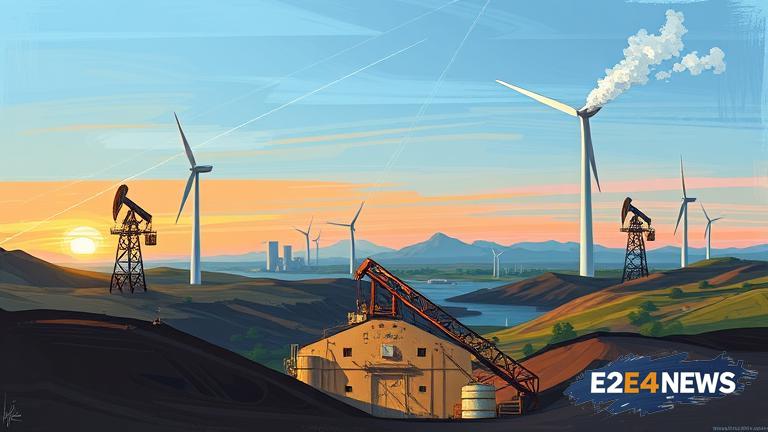The energy sector is currently facing a critical juncture, as it struggles to balance the ongoing reliance on fossil fuels with the need to transition towards more sustainable and renewable energy sources. This dilemma is further complicated by the fact that many countries, including the United Kingdom, have set ambitious targets to reduce their carbon emissions and meet their climate change commitments. Despite these efforts, fossil fuels continue to dominate the global energy landscape, with many industries and economies still heavily reliant on coal, oil, and gas. However, the shift towards renewable energy is gaining momentum, driven by advances in technology, declining costs, and growing public awareness of the need to address climate change. Solar and wind power, in particular, have emerged as leading sources of renewable energy, with many countries investing heavily in these technologies. Nevertheless, the transition to a low-carbon economy will not be easy, and it will require significant investment, innovation, and policy changes. One of the major challenges is the need to address the social and economic impacts of the transition, particularly in communities that have historically relied on fossil fuels for employment and economic growth. Furthermore, the energy sector must also contend with the issue of energy security, ensuring that the transition to renewable energy does not compromise the reliability and affordability of energy supplies. In the United Kingdom, for example, the government has set a target to reach net-zero carbon emissions by 2050, which will require significant reductions in greenhouse gas emissions from the energy sector. To achieve this goal, the UK will need to invest in new technologies, such as carbon capture and storage, and improve the energy efficiency of its buildings and industries. Additionally, the country will need to develop new policies and regulations to support the growth of renewable energy and encourage the phase-out of fossil fuels. The European Union has also set ambitious targets to reduce its carbon emissions, and it is likely that other countries will follow suit in the coming years. As the world continues to grapple with the challenges of climate change, it is clear that the energy sector will play a critical role in the transition to a more sustainable future. The sector will need to be at the forefront of innovation and investment, driving the development of new technologies and business models that can support the growth of renewable energy. Ultimately, the success of the energy transition will depend on the ability of governments, industries, and civil society to work together to address the complex challenges and opportunities that lie ahead. The transition to a low-carbon economy will require significant changes to the way we produce, consume, and think about energy, but it also offers a unique opportunity to create a more sustainable, equitable, and prosperous future for all. In conclusion, the energy sector is at a critical crossroads, and the choices we make today will have far-reaching consequences for the future of our planet.
